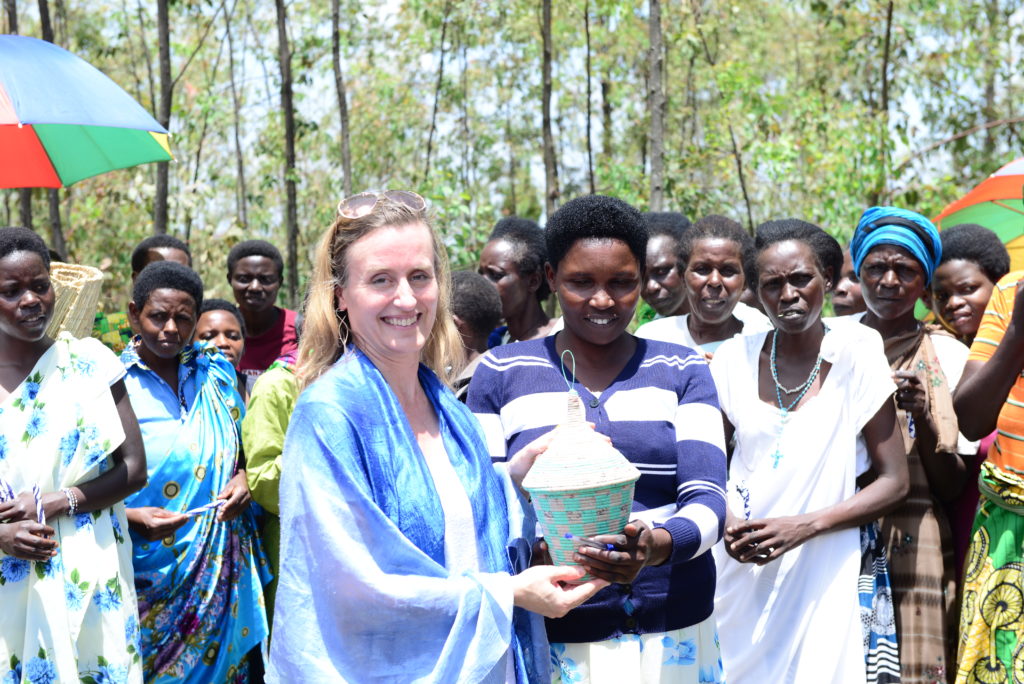Blog
Social Justice Funders Spotlight: Disability Rights Fund
The genesis of the Disability Rights Fund can be traced back to 1999 and a brief exchange that its founding director, Diana Samarasan, had in Macedonia after visiting institutions where people with disabilities had been placed. Working as a mental health consultant for the American Refugee Committee at the time, she recalls her shock at seeing, “children…tied to beds for years at a time so their limbs had atrophied and they could not stand.” She recalled walking into a women’s ward “where the same bucket that was used to mop the floor was used to serve soup… These were horrific, horrific scenes.”
When Samarasan questioned local providers about the deplorable conditions, they told her that people with disabilities “don’t have the same feelings as we do.” That response, she says, “started my journey in addressing disability as a rights issue.”
Until the advent of the Convention on the Rights of Persons with Disabilities or CRPD (an international human rights treaty adopted by the UN in 2006), she says, almost all donors and most Non-Governmental Organizations (NGOs), including those focusing on human rights, viewed people with disabilities as “objects for charity” rather than “active, empowered members of society or rights activists.” She was determined to make “shifting the paradigm from charity to rights and upsetting the power balance” her life’s work.
The opportunity to create a fund dedicated solely to advancing the human rights of people with disabilities didn’t arise until several years later in 2007, following the adoption of CRPD, through the support of an anonymous donor. Samarasan was hired as a consultant and, in consultation with the broader disability community and donors, built the framework for the new fund.
“This fund had to be different. It could not be your traditional top-down philanthropy,” she recalls thinking at the time. And so she devised a strategy for supporting organizations run by and for individuals with disabilities and whose central mission was to advocate for people with disabilities’ full participation in society.
She explained that the slogan for the global disability community – “Nothing about us without us” – came to represent the Fund’s central, guiding philosophy.
Over nearly a decade, DRF has grown its donor pool and now makes 100-125 grants annually, distributing between $2 to $2.5 million every year.
In keeping with its inclusive philosophy and mission, the Fund practices what’s typically called “participatory grantmaking.” The Fund’s grantmaking committee includes four donor members and four leaders with disabilities from the regions where DRF works. This model, Samarasan says, “puts decision-making about funding strategy and grants in the hands of disability rights leaders and activists, who have the expertise and perspectives that funders typically do not have.”
The DRF grantmaking committee makes sure that at least fifty percent of grantees in each round are “marginalized groups” within the disability community, among which are included groups that may not have received any grants in the past. All grantees are working to effect changes in policy and practice on the ground.
The Fund selects particular countries for grant-making based upon what Samarasan calls “political will and a vibrant rights movement” with a commitment to continue the funding for at least six years.
DRF currently funds organizations that work in the Pacific Islands, Haiti, Ghana, Malawi, Rwanda, Uganda, Bangladesh, Myanmar, and Indonesia. Within each country, the Fund selects grantees based on their ability to strengthen the overall climate for policy change around rights of people with disabilities. It strives to create a holistic advocacy strategy, carried out by a cohort of large, medium-sized, and small organizations of people with disabilities.
The fund also encourages cross-movement work involving women, indigenous and LGBTQ populations. Much of the current advocacy within these countries revolves around ratification, implementation, and monitoring of the Convention on the Rights of Persons with Disabilities (CRPD), including utilizing the treaty to argue for inclusion of people with disabilities in the implementation of the new global development framework, the Sustainable Development Goals.
The CRPD mandates participation of representative organizations of persons with disabilities in the implementation and monitoring of rights, including the right to development.
Every year, DRF convenes grantees in each country or region, where it brings in experts to train participants in movement building and strategies for effectively engaging with local and national governments.
Samarasan feels bolstered by what the Fund has accomplished to date. It is, she says, “empowering to see activists with disabilities coming together to fight for rights in their own countries and globally.”
Johanna Wald is a writer and researcher based in Boston. She also is Director of Strategic Planning at the Charles Hamilton Houston Institute for Race and Justice at Harvard Law School.
The Sillerman Center for the Advancement of Philanthropy, based at Brandeis University, informs and advances social justice philanthropy in the United States. They engage the philanthropic community through convenings and presentations, publications, educational courses, fellowships and scholarships, competitive grant contests and through collaborative partnerships with grantmakers and social justice organization.
Read the accompanying Grantee Spotlight on Ohana.
